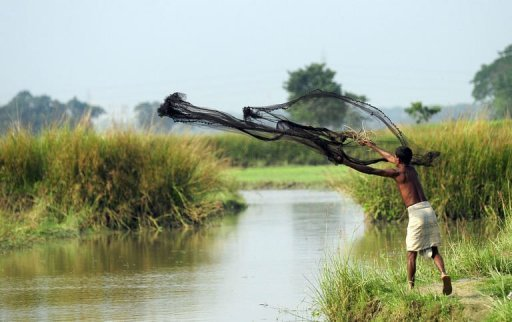Bangladesh s unique geography and rivers provide farmers with nutrient rich soils after the monsoon season

Bangladesh’s Unique Geography and Rivers: A Blessing for Farmers

Bangladesh, an enchanting land located in South Asia, possesses a geography that sets it apart from other countries. This remarkable geographical diversity, along with the presence of numerous rivers, offers a fertile ground for farmers to cultivate crops throughout the year.
Bangladesh is blessed with a unique geographical location. Situated at the delta of three major rivers, the Ganges, Brahmaputra, and Meghna, the country is often referred to as the “Land of the Rivers.” This positioning, combined with its low-lying coastal plain, creates a diverse landscape that ranges from hills and plateaus in the northeast to vast floodplains and mangrove forests in the south.
During the monsoon season, Bangladesh experiences heavy rainfall, which causes the rivers to overflow their banks and flood the surrounding areas. While devastating for some, this natural phenomenon has bestowed upon the country a major advantage - nutrient-rich soils. As the rivers recede, they leave behind a fertile layer of silt known as alluvium. This alluvial soil is incredibly fertile and ideal for farming, providing essential nutrients for the growth of crops.

The nutrient-rich alluvium is especially beneficial to rice cultivation, which is the staple crop of Bangladesh. Due to the country’s unique geography, farmers are able to practice both floodplain and terrace farming, ensuring a continuous supply of rice throughout the year. The floodplains are flooded during the monsoon season, allowing farmers to grow wet rice. Conversely, terrace farming is practiced in the hilly regions, where the land is carved into steps to prevent soil erosion and create small plots that can be utilized for rice cultivation.
The rivers in Bangladesh also serve as essential transportation routes for both people and goods. They facilitate the movement of crops from rural areas to urban centers, enabling farmers to access markets and increase their income. Additionally, the rivers provide water for irrigation, thereby helping farmers maintain a steady supply of water for their crops.
In conclusion, Bangladesh’s unique geography and the presence of abundant rivers have positively influenced the country’s agriculture sector. The nutrient-rich soils left behind after the monsoon season, along with the versatile farming methods employed, ensure a continuous supply of crops, particularly rice. Moreover, the rivers play a crucial role in transportation and irrigation, further enhancing the agricultural productivity of the country. Bangladesh’s natural blessings truly make it an agricultural paradise, providing sustenance and prosperity to its farmers.
Related Posts
Quick Links
Legal Stuff

